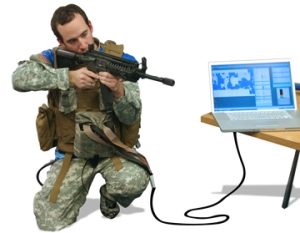Jul 22 2010
A network of piezoelectric sensors can be incorporated into apparels to regulate pressure points encircling a human body. This is used in testing various equipments such as shoes, body armor, beds, garments, athletic equipments and industrial machinery.

Integrating innumerable sensors in easy, multiplex modes called Tactilus Body Mapping Technology belongs to Sensor Products Inc. is being utilized by Philadelphia University, U.S. Air Force and KDH Defense Systems to scrutinize the stimulating effects of body armor and how pressure affects body armor.
According to Jason Blume, Sensor Products Manager, fixing a single sensor randomly all over the clothing presents scarce data but with the use of their integrated method, the entire locale comes under surveillance.
The facts obtained from recognizing pressure points that manifest when the soldiers stand, jump, turn, run, crawl or crouch, investigated by the US Air Force are used by Design Engineers in creating new jackets and other body armor to help disperse the soldier’s burden more equitably.
The four key constituents of the Tactilus System are piezoelectric sensors, a multiplexer, analog-to-digital converter and a laptop-supported software. The multiplexed information obtained from the sensors is altered to digital signals which are then analyzed by the software. Around 1024 sensors may be present in one sensor network.
Blume states that this technology has been found to be of great value in applications such as heat seals, lamination presses, orthotic designing of shoes, creating designs for consumer clothes and in athletic gear.